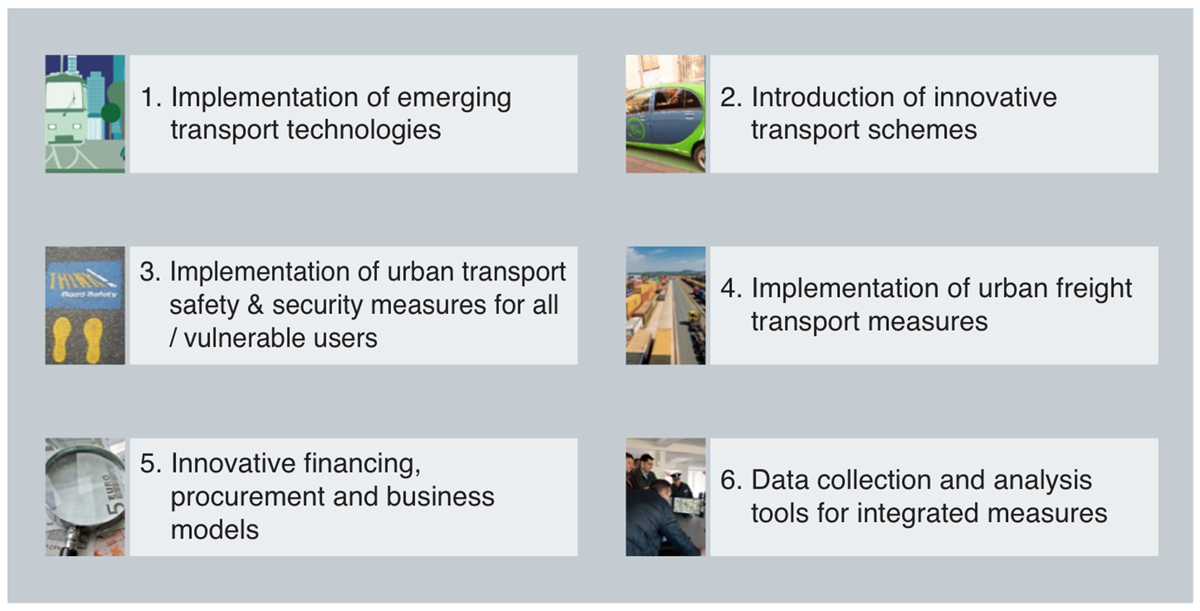Andree Woodcock, a Professor from Coventry University, tells us all we need to know about a four-year research and innovation action project to develop and implement sustainable, inclusive and accessible transport strategies
H2020 CIVITAS SUITS (Sustainable Urban Integrated Transport Systems: Transferable tools for Small to Medium local authorities) is a four-year research and innovation action (RIA), entering its final 18 months. Its aim is to increase the capacity of Small-Medium (SM) local authorities (LAs) to develop and implement sustainable, inclusive, integrated and accessible transport strategies, policies, technologies, practices, procedures, tools, measures and intelligent transport systems (ITS) that recognise the end-to-end travel experiences of all users and freight.
It is perceived that SM cities are unlikely to have sufficient resources to develop, support and finance integrated urban mobility plans without a broad range of targeted capacity-building measures. SUITS argues that rather than importing or adapting existing sustainable transport measures or buying in expertise, cities should be supported in building up local capacity (in their governmental institutions, businesses and citizens) to grow, fund and implement bespoke and context-sensitive sustainability strategies, appropriate to their needs.
Playing an active role in the CIVITAS 2020 family, SUITS contributes towards the CIVITAS initiative and adoption of SUMPs across the European Union (EU), as a Member of the Co-ordinating Group of the European Platform on Sustainable Urban Mobility Plans (SUMP), especially concerning innovative financing and procurement and inclusivity. Although integrating with SUMP vsn 2.0, having a SUMP is not a prerequisite for using SUITS’ outputs.
In relation to sustainable transport, SUITS argues that capacity-building should embrace change, at the individual, organisational and institutional levels. This includes providing the knowledge and know-how of the latest transport innovations, mobility data usage, rules, regulations and citizen engagement processes. These directly impact how a transport department goes about its business, enabling them to make better, more informed plans. The following sections outline the two main outputs of the project.
Crowdsourcing data
As an RIA project, SUITS has successfully piloted the use of real-time traffic data collection through crowdsourcing in urban traffic management to address issues of both passenger and freight mobility as a low-cost means of gathering, visualising and analysing such data. This method is especially attractive to SM cities. Trials in Kalamaria and Torino indicate not only the suitability of the method but also, the steps which local authorities need to take to guarantee sufficient, reliable and General Data Protection Regulation (GDPR)-compliant data collection.
All cities are free to use our Data Repository to access traffic datasets and share their open data with others. SUITS toolset enables the selection and visualisation of large, crowdsourced traffic datasets with the ability to scale efficiently to handle big data. Citizen privacy is ensured by data anonymisation or pseudonymisation techniques, tools and application of strongly secure crypto technologies for data communication and storage. The use of real-time data also features in SUITS CBP, discussed below.
SUITS Capacity Building Programme (CBP)
To understand the needs of the transport departments, SUITS has worked extensively with partner cities (Alba Iulia, Transport for West Midlands, Kalamaria, Turin, Rome and Valencia and follower cities of Dachau, Stuttgart and Palanga) to determine first of all, the existing gaps in knowledge and secondly what changes need to be made within the organisation for it to work more effectively, apply, use and measure the impact of capacity-building measures.

SUITS work has confirmed that local authorities (LASs) face many challenges in developing sustainable urban planning measures and deploying innovative mobility solutions and technologies. Despite comprehensive EU Guidelines for developing and implementing such projects, LAs may struggle to perform exhaustive preliminary analyses, develop SMART goals coupled with long-term vision and impact assessment.
Furthermore, substantial drawbacks occur in the implementation phase of urban mobility projects, particularly in terms of improving conceptual planning processes and establishing sustainable financing schemes. This derives from the lack of appropriate expertise and organisational structures which impede innovation and barriers to interdepartmental working needed for smart city development.
Requirements analysis of the SUITS cities and reviews of existing guidelines has led to the development and implementation of six tailorable modules, specially designed for SM LAs which aim to:
• Increase the capacity to develop and implement sustainable, inclusive, integrated and accessible transport;
• Support development of SUMPs by transforming them into learning organisations and;
• Increase resilience and responsiveness of transport departments to new challenges and changes.
Six modules (see figure 1) have been developed, acknowledging gaps in existing training material and the needs of SM LAs. These include a Facilitator Guide, appropriate training material delivered either as classroom courses (modules 1-4) or e-learning modules (5-6). The courses have been structured to clarify the value of measures for small-medium cities, analyse a successful case, present innovative financing and procurement procedures tailored to topic requirements, as well as tools and guidelines for the enhancement of measures’ implementation and user engagement.
The CBP has been assessed piloted with SUITS cities. Overall evaluation has shown that participants were fully satisfied with the learning ambience and more than 50% gave the highest rate regarding the content accuracy, exercises structure, course structure and achievement of workshop objectives. During the next 12 months, all material will be released (in Italian, Spanish, Portuguese, Greek, Lithuanian, German and Romanian) as the SUITS Capacity Building Manual and Toolbox (freely available to the Open Research Data Portal and the CIVITAS Urban Mobility Tool Inventory). Specifically, the Toolbox will consist of:
• A step by step guide for LAs assisting them in the decision-making process when developing SUMPs;
• An Integrated Decision Support Tool to assist LAs in setting innovative financing, public procurement and project development processes;
• Links to resources such as databases and models that are particularly relevant to transport planning and sustainable mobility planning for Las and;
• Relevant examples and case studies.
The SUITS consortium consists of twenty-two partners from eleven EU countries, among them nine cities in seven EU countries. It is coordinated by the Future Transport and Cities Research Institute, Coventry University, UK.
This project has received funding from the European Union’s Horizon 2020 research and innovation programme under grant agreement no 690650.

Andree Woodcock
Professor
Coventry University
Tel: +44(0)7974 984 460
A.Woodcock@coventry.ac.uk
www.coventry.ac.uk
www.twitter.com/suits_project
*Please note: This is a commercial profile











